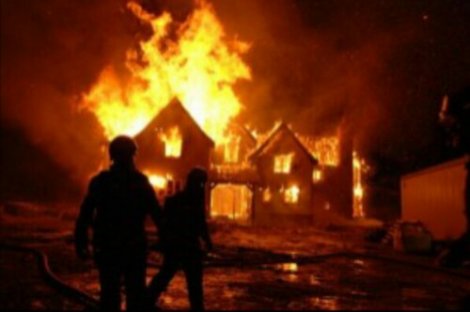By Gabriel Maggio, Jr.
(WINDSOR, ON) – As a downtown resident I assure you that the downtown Windsor fire station is busy. Living at Victoria and Erie, for about 13 years now, we hear the fire trucks each time they leave the station. I imagine that they are not always sleeping during their overnight shifts.
Although current Windsor firefighter negotiations are about more than just wages and hours of work, the fired up social debate over whether a firefighter’s wages or salary is too high needs to be “put out” among the residents.
As a part of various threads in social media, I have read overwhelming support for firefighters, however there are still many who lack facts and who spew misinformation.
In a recent Windsor Star editorial, a Windsor resident, Bruce Wills, argued that the firefighters ought to thank Winsorites for their support and cited a few half-witted reasons in an attempt to undermine the current climate. The writer suffers from a sense of entitlement.
Regardless of what perks or liberties come with the career, Winsorites should be thankful for its firefighters. I don’t know about Mr Wills’ parenting skills, but we teach our children to thank police officers and firefighters. I wonder if Mr Wills would ask for a similar “thank you” from a War Veteran.
One side of the debate appears to be supported by a vocal minority of the population that holds a degree of “career envy” and is fueled by certain players, who are ignoring important facts, to achieve a bottom line. While the other side are simply seeking what they are owed and what is best for the safety of Windsor residents.
Those opposing the current pay scale and the on-going proposals for Windsor firefighters are not taking into consideration the real occupational hazards for which fire-fighters are at risk, even if the fire-fighter doesn’t enter a structure that is ablaze.
In a 2009 report entitled Fire Fighter’s Health and Wellness by Scott Miller, DC, Acting Safety Officer in Ottawa, it was revealed that firefighters have “one in five chances of being injured or killed in every given year.“
They are also at elevated risks of the following;
- Cardiovascular events (heart attack) is the leading cause of on-scene death, at 50%, states the National Institute for ccupational Safety and Health, and
- The odds of a heart attack while fire fighting are 12 to 136 times the risk compared to regular duties as stated in the New England Journal of Medicine in 2007.
Information from the OPFFA, gathered on fire-fighters across Ontario, shows the average lifespan of an Ontario male is 78 years, according to Statistics Canada, while the average age of death of an active fire-fighter is 45.8 years. Meanwhile, the average age of death after retirement is 71.
The debate is over. The reason for the higher pay scale is obvious.
We are paying what is considered to be an elevated wage for the risks and shorter lifespans that come with the job.
If your career can significantly cut your lifespan short, as well as expose you to a host of other health risks that will prevent a full, or at least, a normal life of enjoyment, particularly in post-retirement, then fair compensation of these risks must be reflected in the wage.
Those who become firefighters are essentially taking the risk of a shorter lifespan in lieu of pay. Are you seriously willing to do the same? And if you are, do you think your pay scale should reflect your willingness to put yourself at risk?
Of course it should.
The problem here is that most people have not considered the real risks involved in fire-fighting.
The idea of being a fire-fighter has been over glamourized in the media and, unfortunately, it is in these circumstances where the media comes down against fire-fighters during negotiations.
Safety is paramount, regardless.

